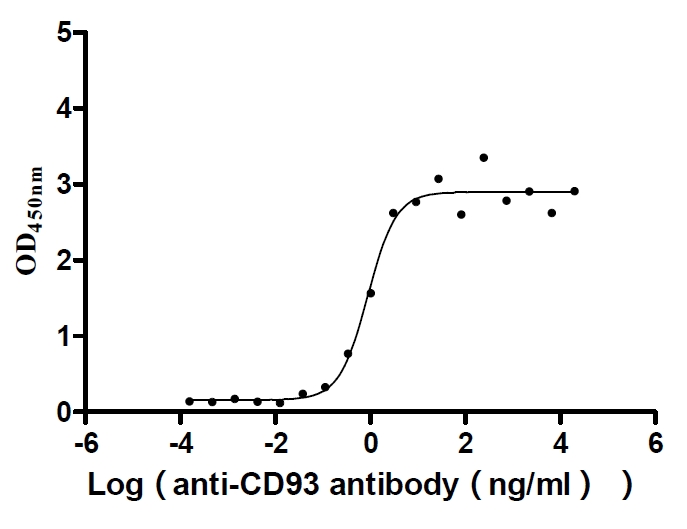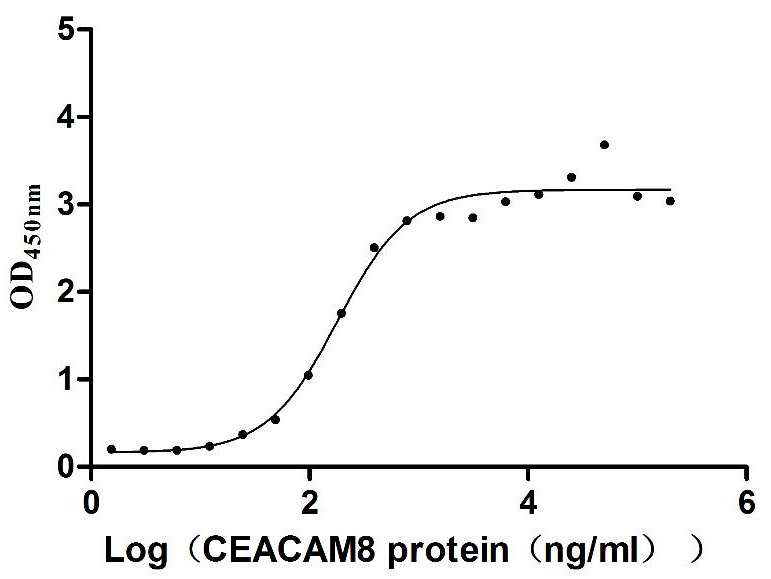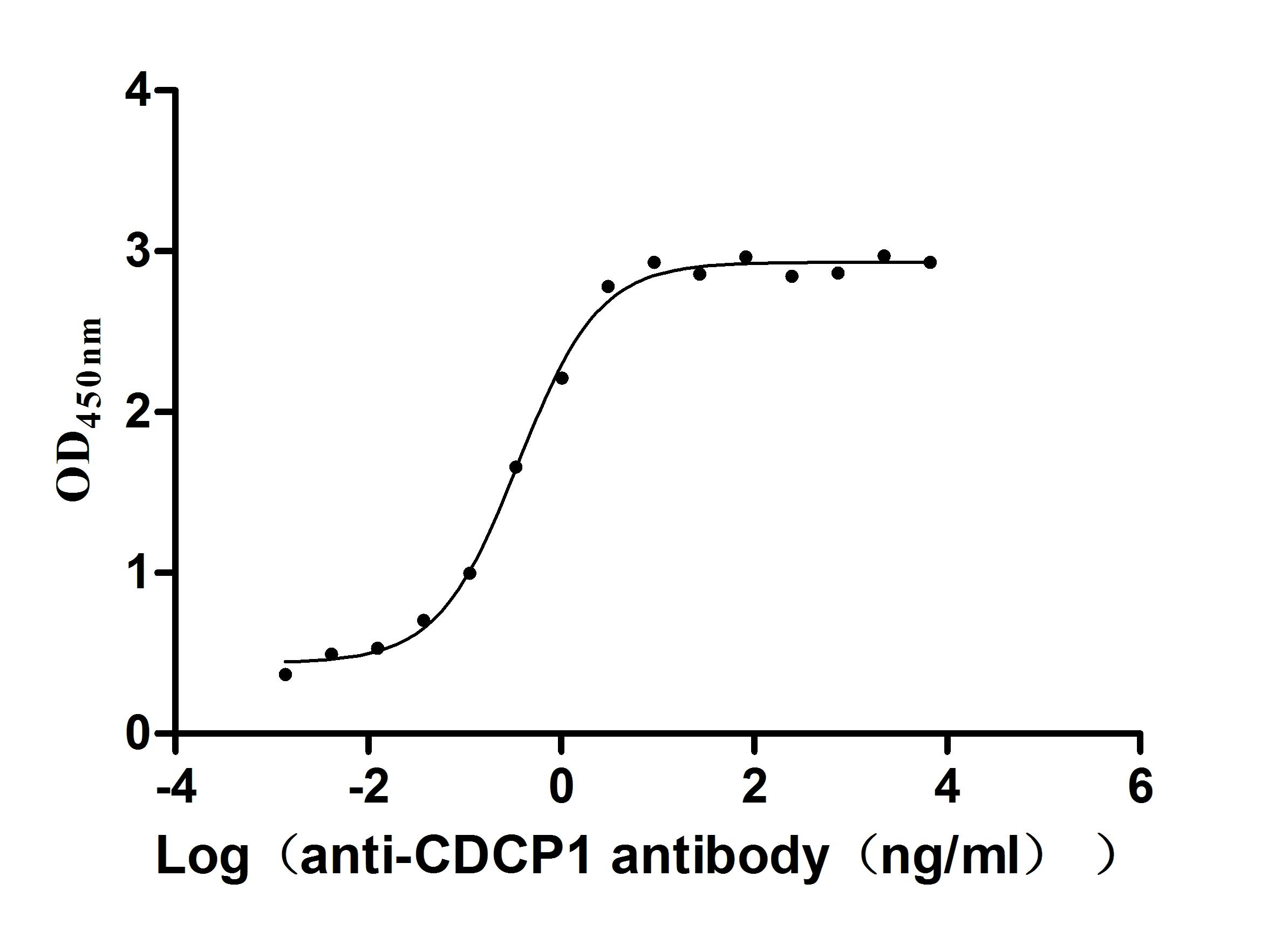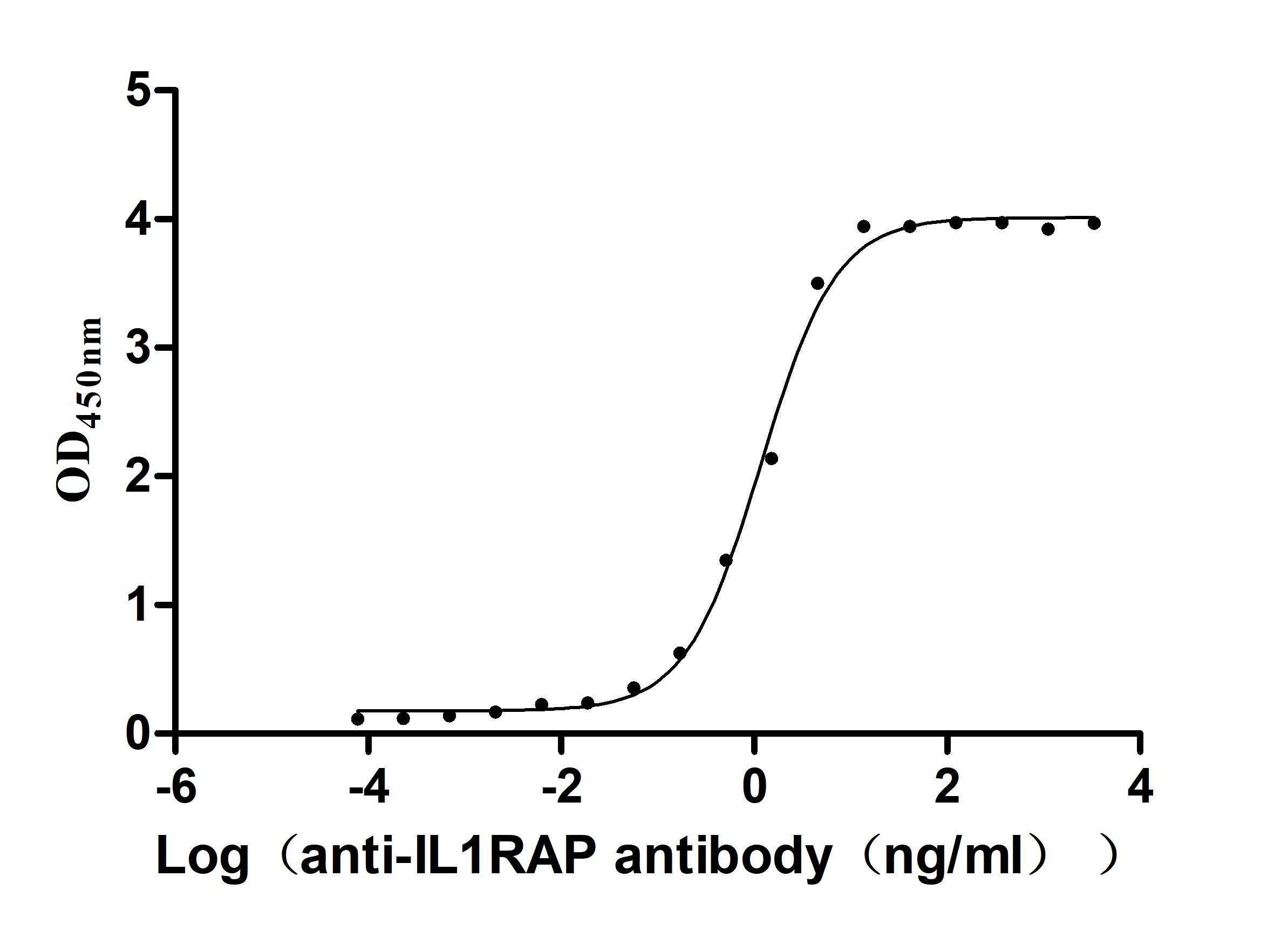Recombinant Human T-cell-specific surface glycoprotein CD28 (CD28), partial
-
货号:CSB-MP004913HU1
-
规格:¥2376
-
图片:
-
其他:
产品详情
-
纯度:Greater than 85% as determined by SDS-PAGE.
-
基因名:
-
Uniprot No.:
-
别名:CD28; T-cell-specific surface glycoprotein CD28; TP44; CD antigen CD28
-
种属:Homo sapiens (Human)
-
蛋白长度:Extracellular Domain
-
来源:Mammalian cell
-
分子量:44.1
-
表达区域:19-152aa
-
氨基酸序列NKILVKQSPMLVAYDNAVNLSCKYSYNLFSREFRASLHKGLDSAVEVCVVYGNYSQQLQVYSKTGFNCDGKLGNESVTFYLQNLYVNQTDIYFCKIEVMYPPPYLDNEKSNGTIIHVKGKHLCPSPLFPGPSKP
Note: The complete sequence including tag sequence, target protein sequence and linker sequence could be provided upon request. -
蛋白标签:C-terminal hFc-tagged
-
产品提供形式:Liquid or Lyophilized powder
Note: We will preferentially ship the format that we have in stock, however, if you have any special requirement for the format, please remark your requirement when placing the order, we will prepare according to your demand. -
缓冲液:Tris-based buffer,50% glycerol
-
储存条件:Store at -20°C/-80°C upon receipt, aliquoting is necessary for mutiple use. Avoid repeated freeze-thaw cycles.
-
保质期:The shelf life is related to many factors, storage state, buffer ingredients, storage temperature and the stability of the protein itself.
Generally, the shelf life of liquid form is 6 months at -20°C/-80°C. The shelf life of lyophilized form is 12 months at -20°C/-80°C. -
货期:Basically, we can dispatch the products out in 1-3 working days after receiving your orders. Delivery time may differ from different purchasing way or location, please kindly consult your local distributors for specific delivery time.Note: All of our proteins are default shipped with normal blue ice packs, if you request to ship with dry ice, please communicate with us in advance and extra fees will be charged.
-
注意事项:Repeated freezing and thawing is not recommended. Store working aliquots at 4°C for up to one week.
-
Datasheet & COA:Please contact us to get it.
相关产品
靶点详情
-
功能:Involved in T-cell activation, the induction of cell proliferation and cytokine production and promotion of T-cell survival. Enhances the production of IL4 and IL10 in T-cells in conjunction with TCR/CD3 ligation and CD40L costimulation. Isoform 3 enhances CD40L-mediated activation of NF-kappa-B and kinases MAPK8 and PAK2 in T-cells.
-
基因功能参考文献:
- The results of this study indicated that the CD28 rs3116496 polymorphism might impact the risk of schizophrenia, especially deficit schizophrenia. PMID: 28673752
- CD28 may be a tumor suppressor gene and rs3116496 polymorphism of CD28 gene showed positively correlation with the increased risk of breast cancer. PMID: 29089469
- percentage of CD4(+) CD28(null) T-cells was significantly higher in type 1 diabetes patients with and without microvascular complications compared with controls PMID: 28102614
- Suggest that genetic polymorphisms of CD28 function as sex-dependent risk factors for development of acute rejection in an Iranian kidney transplant population. PMID: 28031007
- the expression of CD28 was lower in both Sjogren's syndrome and systemic sclerosis patients PMID: 27878564
- The fraction of CD4(+)CD28(null) cells proved to be predictive on outcome in congestive heart failure-patients presenting with atrial fibrillation. PMID: 27904907
- In this study we systematically evaluated a series of CAR constructs targeting glypican-3 (GPC3), which is selectively expressed on several solid tumors. We compared GPC3-specific CARs that encoded CD3zeta (Gz) alone or with costimulatory domains derived from CD28 (G28z), 4-1BB (GBBz), or CD28 and 4-1BB (G28BBz). PMID: 27530312
- These preliminary results suggest that patients undergoing liver or kidney transplant can be stratified at high risk of EAR according to their CD28 molecule expression on peripheral CD4(+) T lymphocytes. PMID: 28392336
- The rs3116496 (T>C), rs3181098 (G>A) and rs3181100 (G>C) of CD28 were, respectively, found to be correlated with incremental susceptibility to recurrent spontaneous abortion under the allelic model. PMID: 29069644
- Coexpression of CD200R-CD28 enhances function in WT1-specific T-cell receptor - transduced human primary T cells. PMID: 29042364
- the upregulation of others syncytial molecules, including LAG3, CTLA4, CD28 and CD3, assisting the formation of syncytia with APC cells. PMID: 27108398
- our data provide the first evidence of a strict link between the absence of CD28 and the expression of perforin, which is likewise enhanced by the expression of NKG2D, within selected CD4(+) T cells from cervical cancer patients. PMID: 28087292
- Mutation of the basic clusters in the CD28 cytoplasmic domain reduced the recruitment to the CD28-Lck complex of protein kinase Ctheta; (PKCtheta;), which serves as a key effector kinase in the CD28 signaling pathway. PMID: 27460989
- The mutant CD28 isoforms could accelerate tumor cell growth. PMID: 28711152
- identified recurrent mutations in CD28 in peripheral T-cell lymphomas. Molecular modeling studies on each of these mutations suggested how these mutants result in increased affinities. PMID: 26719098
- the scaffolding role of RLTPR predominates during CD28 co-stimulation and underpins the similar function of RLTPR in human and mouse T cells. PMID: 27647348
- Our data show that mast cells can costimulate human CD4(+) T cells to induce strong T-cell proliferation, but that therapies aiming at disrupting the interaction of CD28 and B7 molecules do not inhibit mast cell mediated T-cell activation. PMID: 26860071
- High CD28 Circulating Levels are associated with Breast Cancer. PMID: 27381613
- The CTLA4-CD28 gene fusion is likely a major contributor to the pathogenesis of T-cell lymphomas and represents a potential target for anti-CTLA4 cancer immunotherapy. PMID: 26819049
- Following phosphorylation of the tyrosine, the proteins growth factor receptor-bound protein 2 (Grb2), Grb2-related adaptor downstream of Shc (Gads), and p85 subunit of phosphoinositide 3-kinase may bind to pYMNM (where pY is phosphotyrosine) via their Src homology 2 (SH2) domains, leading to downstream signaling to distinct immune pathways. These three adaptor proteins bind to the same site on CD28 with variable affinity PMID: 27927989
- CD28 family receptors are potential clinical indicators for the rapid monitoring of changes in T cell function during CHB treatment. PMID: 27314219
- The eQTL mapping analysis revealed that the variations in CD28 and NFKB1 gene content might affect the abundance of transcripts of CD28 and Family with sequence similarity 177 member A1 (FAM177A1) genes, respectively. These results suggest that CD28 and NFKB1 gene variants may be associated with increased risks to IRM. PMID: 27488439
- this study shows that CD28 contributes to rheumatoid arthritis susceptibility in Egyptian PMID: 27125674
- A highly recurrent novel missense mutation in CD28 among angioimmunoblastic T-cell lymphoma patients. PMID: 26405154
- These findings indicate that the associations of the CTLA-4 and CD28 polymorphisms with the risk of renal cancer are worth further study in a larger group of patients. PMID: 26403483
- expansion of highly differentiated CD28null T cells is associated with a lower risk for early acute rejection after kidney transplantation PMID: 26950734
- In patients presenting with acute coronary syndrome, the CD4 + CD28null T cell percentage was higher in patients with non-ST-segment-elevation acute coronary syndrome versus those with STEMI. PMID: 26375412
- in complex with T cell receptor, promotes glycolysis PMID: 26885860
- Data show that CD28 antigen costimulation modulates CD46 antigen surface expression on activated T cells. PMID: 25787182
- study also uncovered a previously unappreciated role for Vav1 in crosstalk between the CD28 and TCR signaling pathways PMID: 26043137
- Among CD8+ T-lymphocytes, CD28+CD57+ cells represent a subset with some senescent features that are distinct from the CD28-CD57+ cells. PMID: 26277688
- The CD28 gene polymorphisms may not only act in immune deregulation observed in schizophrenia, but may also influence the course of the illness by modifying the susceptibility to the co-occurrence of psychotic and affective symptoms PMID: 25998553
- CD28 polymorphism, rs3116496, contributes to cancer susceptibility in the case of multiple cancers. PMID: 25534869
- The functional decline of invariant natural killer T cells was closely related to the decrease in CD28 expression and the increases of Tim-3 and PD-1. PMID: 26215444
- Results showed lower and higher serum levels of CTLA4 and CD28 detected respectively in patients with colorectal cancer (CRC)and found an association of the CTLA4 -318C/T polymorphism in CRC patients. PMID: 26408701
- analysis of signaling pathways activated by CD28 during direct cell-cell contact by global analysis of protein phosphorylation PMID: 25829543
- Immature dendritic cells convert anergic nonregulatory T cells into Foxp3- IL-10+ regulatory T cells by engaging CD28 and CTLA-4. PMID: 25382658
- our data provide evidence that Vav1 is the linker molecule that couples CD28 to PIP5Kalpha activation and strongly fit with a potential model in which CD28 regulates PIP2 synthesis and turnover in T lymphocytes. PMID: 25539813
- Thus, aberrant CD28 expression on circulating CD8+ T cells and the CD8+CD28+/CD8+CD28- T cells ratio reflect the dysregulation of T cell activation and are related to the pathogenesis of chronic HBV infection. PMID: 25013781
- Five functional polymorphisms of B7/CD28 co-signaling molecules alter susceptibility to colorectal cancer. PMID: 25497975
- Studies suggest that CD28 T > C polymorphism (rs3116496) may have an increased risk of cancer in Asians. PMID: 24927673
- These results suggest that HVEM might play more important roles than CD28 in ConA-mediated T cell proliferation PMID: 24163161
- Results indicate that the CC genotype and C allele of PD.1.9 and TT genotype and the T allele of CD28 are genetic risk factors for development of a severe grade of GVHD. PMID: 24564845
- these data identify CD28 as a novel receptor molecule that may contribute to amplify the inflammatory response in relapsing-remitting multiple sclerosis by favoring pro-inflammatory cytokine production and Th17 amplification PMID: 24412596
- The results of our study suggest an association between IVS3 +17T/C polymorphism in the CD28 gene and acute kidney allograft rejection. PMID: 24368148
- Increased circulating level of HSP60 and HSP70 might play a role in initiation and/or progression of atherosclerosis in CKD subjects through perturbation of CD4(+)CD28(null) cells. PMID: 24347824
- Loss of CD28 expression by liver-infiltrating T cells contributes to pathogenesis of primary sclerosing cholangitis. PMID: 24726754
- Investigation of organ sites, molecules, and cell subsets provides involvement in the priming of CD28 transgene-specific CD8 T cells following vaccination with a replication-deficient adenoviral vector. PMID: 24951814
- this study identified two crucial immune-related molecules-CD28 and NFATc1, as putative targets of miR-145 in human and experimental myasthenia gravis PMID: 24043548
- CD28 is an important mediator of Multiple myeloma survival during stress and can be targeted to overcome chemotherapy resistance. PMID: 24782505
收起更多
-
亚细胞定位:Membrane; Single-pass type I membrane protein.; [Isoform 3]: Cell surface.
-
组织特异性:Expressed in T-cells and plasma cells, but not in less mature B-cells.
-
数据库链接:
HGNC: 1653
OMIM: 186760
KEGG: hsa:940
STRING: 9606.ENSP00000324890
UniGene: Hs.443123

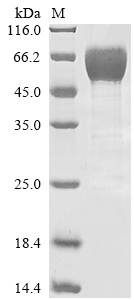

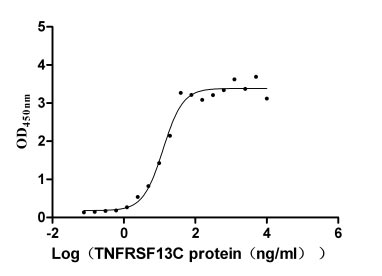
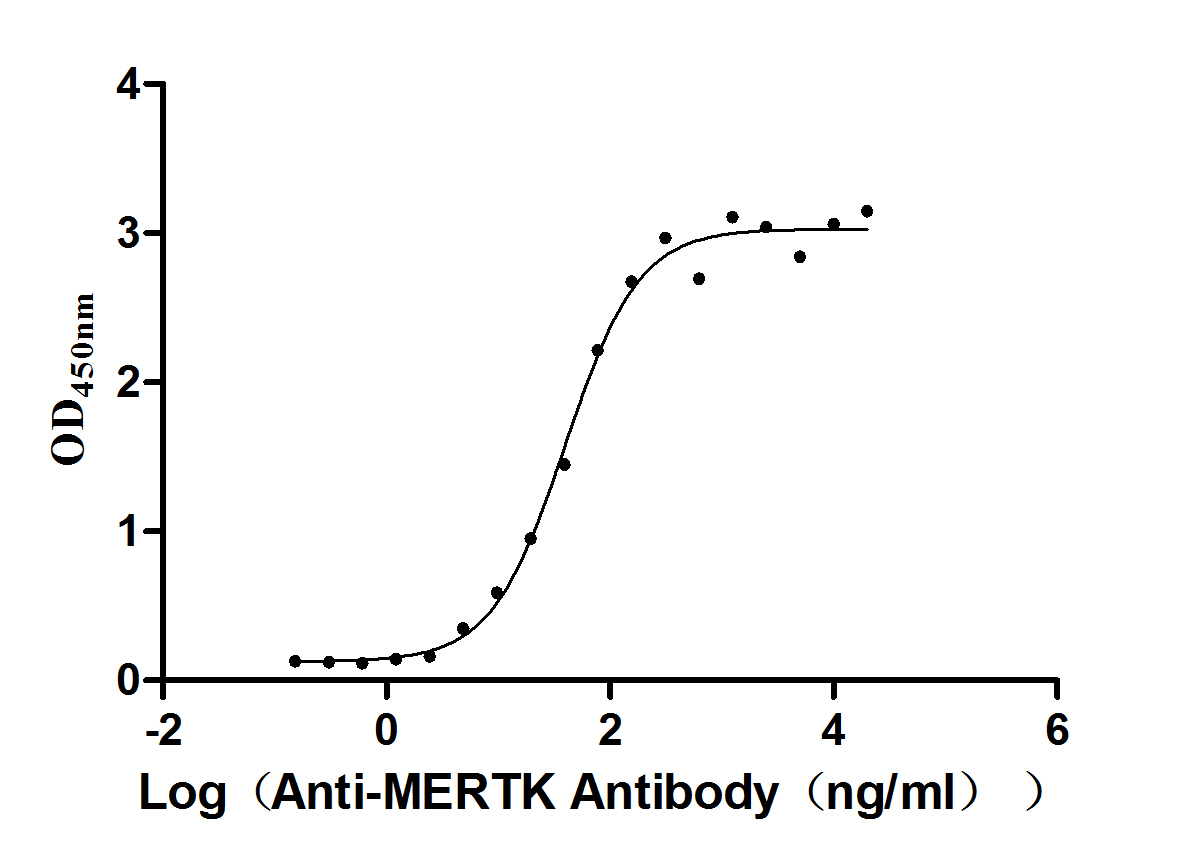
-AC1.jpg)
